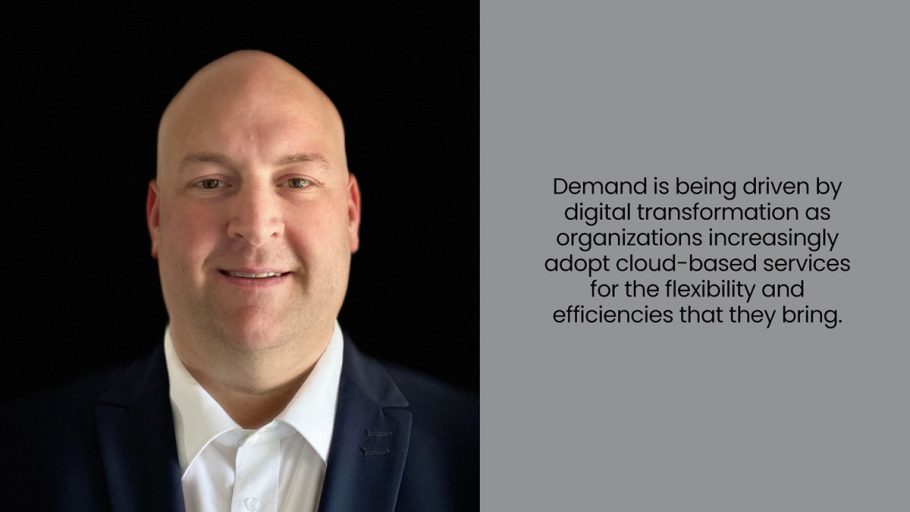The global market for data centers is growing at an extraordinary pace. In 2023, the market was valued at a little over $219 billion and is projected to have grown to around $243 billion by the end of 2024 and a breathtaking $585 billion by 2032.
Demand is being driven by digital transformation as organizations increasingly adopt cloud-based services for the flexibility and efficiencies that they bring. As reported recently in Fortune Business Insights, the growth of cloud computing, including private, public and hybrid clouds, is significantly boosting date center investments, while the roll-out of 5G networks, and the growing demand for high bandwidth, low latency applications are driving the deployment of edge data centers, especially among smaller businesses.
The big winners in the current data center bonanza are the Americans; North America held the largest data center market share in 2023, with almost 40 percent of the market. Its rapid growth has been fueled by the rapid adoption of cloud services, AI and ‘big data’ applications, with substantial investments from the likes of Schneider Electric, IBM and Cisco, notable for their size.
By comparison, almost every other region lags significantly behind. Asia Pacific is growing, and Indonesia in particular has been picked out as a key market for future growth. Europe is also expected to grow, supported by an extensive and advanced network infrastructure, including widespread fiber optic networks and high-speed internet connectivity.
Major data center hubs have already been established in Germany, the Netherlands, and Ireland, and the region continues to attract substantial investments from both local players and larger global technology providers.

RISING STAR
Arguably the greatest untapped market for data centers over the next decade is Africa. Currently representing only around two percent of global data center capacity, it’s a continent and a region with huge potential that is undergoing significant digital transformation which is, in turn, helping to drive economic growth.
To become a future data center powerhouse, Africa has many important factors on its side. It’s home to approximately 1.5 billion people, and has a population with an average age of only 19. The opportunity is well spread, with South Africa, Nigeria and Egypt currently leading the field followed by Kenya, Morocco, and Algeria. Other countries such as Côte d’Ivoire, Ghana, Tanzania, and Cameroon are expanding at a slower rate, and Senegal, Angola, Uganda, Ethiopia, Rwanda, and Mozambique are bringing up the rear, albeit with an appetite to expand.
Despite the positive outlook, Africa’s data center market faces several challenges. Many regions have poor power infrastructure, leaving around 600 million people without access to electricity and, therefore, the Internet. The existing power infrastructure is also too unreliable for data center operators, disrupting connectivity, creating service outages, and putting data center operations at risk.
Overcoming the structural challenges, however, is only one part of the problem. A bigger issue comes from finding the people.
BUILDING THE FUTURE
A skilled workforce is needed to sustain Africa’s growing digital infrastructure and to build its own data center capabilities. By 2030, it is expected that there will be around 230 million jobs requiring digital expertise. Currently, however, there is an acute shortage of trained professionals in the region.
Government and private-sector partnerships are being forged to close the skills gap. Initiatives that provide digital training to young Africans are vital in creating a sustainable talent pipeline for the data center and tech industries. Many companies, such as Africa Data Centers, are now investing in local educational programmes to prepare young talent for the growing industry.
Building the talent pool is only meaningful to Africa’s future if those jobs stay within the region. Unfortunately, it is not always the case. Once trained, many people leave for better-paid opportunities in the US, Europe, and Asia. Until there is a financial level playing field, that will always be the case; in the short term, the answer is in filling the talent pipeline with sufficient numbers to take account of the volumes who will leave. In the longer term, however, a more sustainable solution will need to be found, such that the disparity between what an individual can earn overseas to the benefit of staying at home is less pronounced.

There is another challenge facing the future of data centers that is something of the elephant in the room. While the African data center market grows, we need to consider whether this growth aligns with the continent’s pressing socioeconomic and environmental priorities where large sections of the population suffer from water shortage and are without access to power.
The threat is that the investment in data centers risks diverting critical resources from local communities. Even after the initial build costs are considered, every facility consumes high operational costs for electricity, cooling, staffing and maintenance—costs which can be substantial for organizations of any size.
Every threat, however, can also be seen as an opportunity. As operators build power and fiber optic infrastructure for their data centers, can they provide Africa’s people with better access to electricity by transferring excess power to the national grid? Can the benefits of digital infrastructure extend beyond the tech-savvy and reach those who currently lack basic access to technology, helping to educate this young population to become digitally skilled and able to drive economic and social reform?
And it is not just in Africa that such questions need to be asked. There are many other parts of the developing world who could similarly benefit from such joined-up thinking, and how taking a more holistic approach to data center growth could benefit a truly global audience. The data center industry is arguably at a critical turning point and needs to choose its direction wisely. If it does so, then we have a rare opportunity to play a pivotal role in shaping the world’s future economic development.
ABOUT THE AUTHOR
Mike Meyer is the Managing Director of Portman Partners and supports firms in the digital infrastructure space to find the best leadership talent. He has more than 27 years of experience across digital infrastructure, data center, IT, and telecoms businesses. As a seasoned director, founder, and entrepreneur, Meyer has an established track record of evaluating and developing talent, as well as building successful, cohesive teams globally.
Having worked in the United Kingdom, Europe, South Africa, and across Africa, he has developed in-depth knowledge of diverse, multicultural, and multinational teams. Meyer has honed what is needed to find and foster the best leadership talents.



